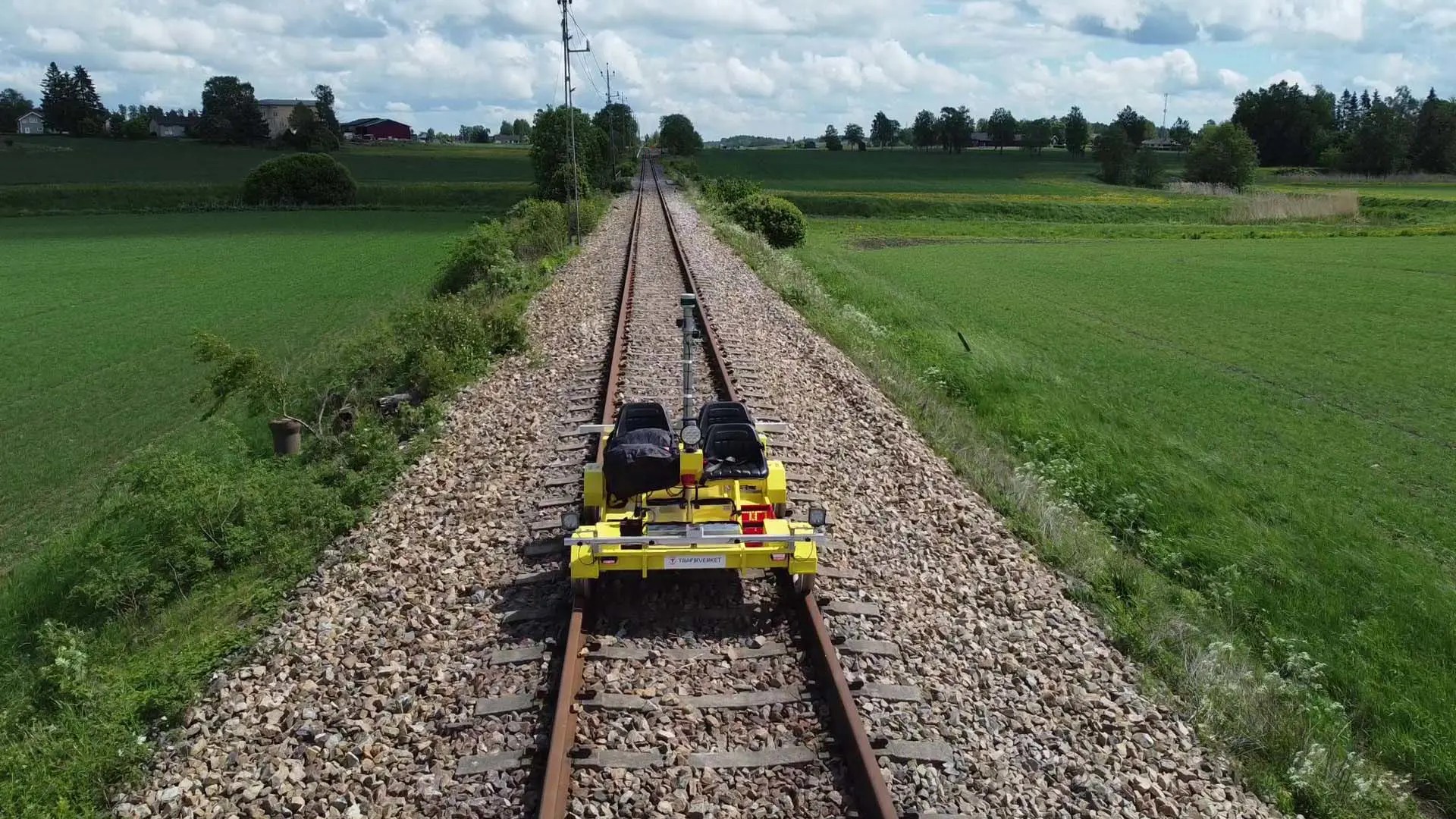

Autonomous robots that detect and repair damages on railway tracks may soon become a reality. Now, a Chalmers-developed maintenance robot is the first of its kind in Europe to be tested on a real railway. The innovation is expected to lead to major savings for society as well as increased safety and accessibility in train traffic.
Inspection and maintenance of railway tracks causes major delays and stops in Swedish train traffic every year, entailing consequences for travelers and great costs for society.
But now, researchers at Chalmers University of Technology have developed an innovation that might remedy the problem. The solution is an autonomous railway robot that is able to make regular inspections of the railway tracks and not only detect damages that have already occurred but also predict where maintenance needs will occur in the near future - with major societal benefits as a result.
"Today, damages on tracks are often taken care of only after they’ve occurred and it’s expensive for society to close off tracks for longer time periods. Using this robot, we’re able to quickly detect and fix problems before an accident or derailment occurs, while increasing the accessibility for travelers and freight traffic and saving money for society. In addition, it increases the safety for those working with railway maintenance,” says Krister Wolff, Associate Professor at the Division for Vehicle Engineering and Autonomous Systems at Chalmers and project manager for the development of the railway robot.
Unique test on a real railway
At the beginning of June, the robot was tested for the first time on a real railway. The test was carried out on a 1.7 kilometer long railway section in Tortuna outside Västerås. The researchers had previously rigged a fabricated "damage" to the rails - a 6 millimeter thick plate - which they hoped the railway robot would be able to detect. Equipped with cameras, 3D lidar, GPS and a so-called accelerometer - a sensor that can detect any movements in height - the challenge for the robot was to detect the damage, stop and send information about exactly where the damage is and at what time it was discovered. The test was a success and can now be seen as the first of its kind in Sweden and Europe.
You can watch a film from the test here.
“There are some similar railway robot projects in the world, but not with the same holistic approach as this. In Sweden, it’s definitely the first time an autonomous robot has been tested on real railways and it’s probably also the first one in Europe,” says Krister Wolff.
Part of major railway research investment in European
The project is funded by the Swedish Transport Administration and is part of the EU project IN2SMART2 focusing on railway research coordinated by the British Network Rail. The robot development project itself is project-led and carried out at Chalmers and was initiated in 2020 when project manager Krister Wolff began converting a conventional railway vehicle into an autonomous robot.
By feeding it with great amounts of training data, the robot can currently recognize and make the right decision based on what it encounters in its surroundings. This means that, for example, it slows down when encountering other trains and when passing road crossings, and it’s able to reads signs and signals at the track. So far it is not yet self-learning, but the long-term ambition is to make it able to not only predict or detect damage and send information about the need for maintenance, but also with the assistance of drones, for example, be able to carry out simpler maintenance on the tracks.
“Let’s say that a train needs to make a sharp deceleration and the train driver suspects that it caused damage to the rails. The train driver may then signal to get a robot sent out to make a quick damage assessment and perhaps even fix the damage on the spot,” says Krister Wolff.
Contact: Krister Wolff, Associate Professor at the Division for Vehicle Engineering and Autonomous Systems at the Department of Mechanics and Maritime Sciences at Chalmers University of Technology and project manager for the robot development project.
Tel: +46-31-7723625
Email: krister.wolff@chalmers.se
- Associate Professor*, Vehicle Engineering and Autonomous Systems, Mechanics and Maritime Sciences
